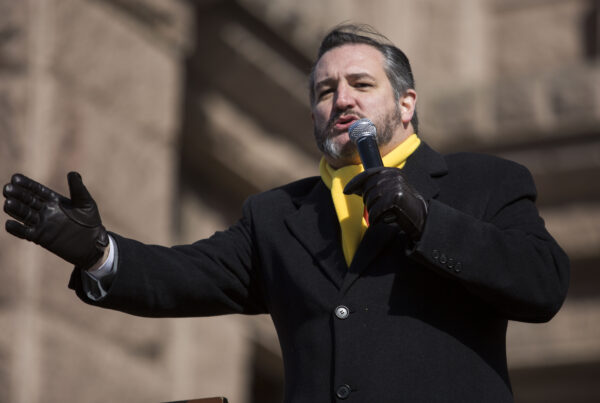This year marks 30 years since a transformative agreement took effect that changed the U.S. economy: NAFTA, the North American Free Trade Agreement.
And though it has been succeeded by a new U.S.-Mexico-Canada trade agreement, in both cases, Texas has been a focal point of that trilateral trade.
Earlier this year, Mexico surpassed China as the biggest U.S. trade partner. It’s long been Texas’ biggest. But Canada may like to have a word with Texas about that.
Mary Ng, Canada’s minister of export promotion, international trade and economic development, met with Gov. Greg Abbott on Thursday. She joined the Texas Standard to talk about the meeting.
This transcript has been lightly edited for clarity:
Texas Standard: I think a lot of folks were surprised that you would be coming to talk with Gov. Greg Abbott. Why did you want to talk with Texas? And about what, specifically?
Mary Ng: Well, first of all, Texas is really important to the Canada-Texas trade relationship. Most people may not know this, but Canada is among the top customers for Texas exports. So, in other words, you send a lot of – and sell us a lot of – goods, somewhere in the order of nearly $40 billion.
And we also buy from Texas. So this is a really important trading relationship. And, you know, the governor was telling me about how much Texas is growing, and what that says to me is that this trading relationship also has opportunity to grow, particularly in some of those areas where there are some really good synergies between Canada and Texas.
Let’s say that this were a successful trip visiting Texas. What does that mean as a practical matter? Is there something in particular that you believe Canada can provide Texas more specifically?
Are we talking about, perhaps, conversations about another oil pipeline? Are we talking about sales of specific goods or something that Texas could do that would open up markets for Canada that it’s not doing currently?
Well, let me talk about one area that is really important to Canada and to Texas and to the United States, and that is building the automobiles of the future. The automobiles of the future are necessarily going to be electric.
Canada has developed a very robust battery ecosystem and supply chain. Canada also has all the critical minerals that are necessary for electric vehicles, but also the rare earth and critical minerals that are going to be needed for the technology future as well as our green future, for example.
» GET MORE NEWS FROM AROUND THE STATE: Sign up for Texas Standard’s weekly newsletters
I want to get to an issue that I know is front and center on your mind because you’ve been in the news recently talking about Canada potentially raising tariffs on Chinese EVs, and we’ve seen an explosion in the EV industry in China in the past couple of years now.
I want to ask, is part of this defensive a move in some respect, that neither Canada nor apparently the Biden administration wants to see a flood of Chinese EVs replacing North American-built vehicles?
Well, Canada and the U.S. absolutely share in a highly integrated automotive supply chain. That isn’t going to change. So, absolutely, this is an important and common area for Canada and the United States.
Now, having said that, I was on the line with Micheline Maynard, who is a noted award-winning automotive journalist, just the other day; she had written a story for the Boston Globe in which she talked about how in the United States, we’re also seeing a big boom in batteries.
But one of the things that she had expressed concern about in her story is that there seems to be a declining interest in EVs, at least for now, and that there were more batteries than there were car sales when it came to EVs. And they were sort of stacking up.
How much of an issue is that, especially as you try to come up with ways to preserve that integrated automotive supply chain and what EVs are going to look like in the future.
Well, electric vehicles are going to be important to our economy, but it’s going to be even more important for all of us to meet our commitments to fighting climate change. All of us are feeling the effects of that, the transportation sector, in particular – automobiles, you know, are a contributor, and electric vehicles are going to help that overall goal.
And there are other things that we need to be doing too, right: semiconductor and chips, I mean, those go into automobiles as well. And the technology, the R&D, and doing that with partners who share values and whose basic governmental institutions stand up, sort of rules-based trade, if you will. That gives us a really good set of conditions for us to be collaborating together.
Were you able to get any commitments from Governor Abbott in the course of your meeting? And if not, what would you hope for in the future? Something specific, perhaps.
Well, what I brought with me are the provincial colleagues from the provinces. But others who accompanied me to the meeting are those very companies that operate here in Texas and who are the job creators here in Texas.
And of the five private sector partners that I had with me to that meeting with Governor Abbott, just among those five, their investment in Texas is $120 billion.
















